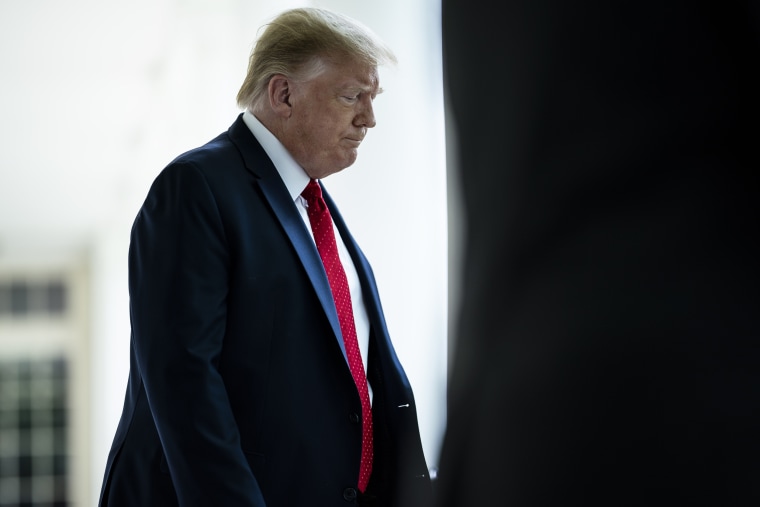"We begin! We begin!" Donald Trump said at the start of his campaign rally in Tulsa on Saturday night. "We begin our campaign." The line may have made the president feel better -- he was, in effect, trying to re-launch his re-election bid -- but he actually began his campaign in Orlando, almost exactly one year to the day earlier.
On June 18, 2019, Trump officially kicked off his 2020 campaign on a Florida stage, where he seemed preoccupied with the 2016 campaign: NBC News' Monica Alba noted that the president mentioned Hillary Clinton at least seven times in the span of about 30 minutes. The president could've taken the opportunity to present his vision for the future, or share with his supporters the kind of priorities he'd fight for if given a second term, but at his official campaign launch, Trump offered nothing of the kind.
The president said in Orlando that he wanted a second term, and that he believed he's entitled to a second term, but at no point did he give any indication of what he intended to do with a second term.
One year and two days later, Trump took the stage in Tulsa for what was effectively his second attempt at a campaign kickoff. Or put another way, the president who had no second-term agenda as of last June had 368 days to come up with some kind of governing vision.
By all appearances, he didn't even try. In Oklahoma, the president offered falsehoods, racial grievances, and ill-considered "jokes," but he never got around to saying what he intended to do if the electorate rewarded him with another term.
This wasn't an oversight; it was evidence of a president who can't bring himself to care about governing.
In my new book, The Impostors: How Republicans Quit Governing and Seized American Politics, I make the case that Donald Trump and his party have become a post-policy party, and the president seemed eager to drive the point home in Tulsa, failing to even keep up appearances about taking policymaking seriously.
Consider this striking statistic: over the course of his 103-minute speech, the president spent one-eighth of his time whining about coverage of his appearance at West Point last weekend. Trump didn't spend any of his time, however, engaging in the major issues of the day or laying out priorities for a second term in the White House.
Voters who want to know what the Republican would do with more power could visit Trump's campaign website, but it doesn't include an issues page. (Former Vice President Joe Biden, in contrast, has 37 plans on his campaign's issues page.) Americans could also presumably review the Republican Party's 2020 platform, but party officials recently agreed to recycle their 2016 blueprint.
Ideally, at this point in the campaign, we'd see a battle of ideas, with the major-party candidates critiquing each other's agendas, highlighting their flaws, and promising a better way. Except in 2020, that's effectively impossible: Trump hasn't presented any ideas to assess.
It's not an accident; it's the result of a choice. Governing parties present platforms to voters, in part so the electorate knows what they consider important, and in part so that winning candidates can claim a mandate in the event of a victory. Post-policy parties, however, don't bother.
In the wake of Trump's Campaign Kickoff 2.0, the incumbent president left no doubt as to what kind of party he intends to lead.

